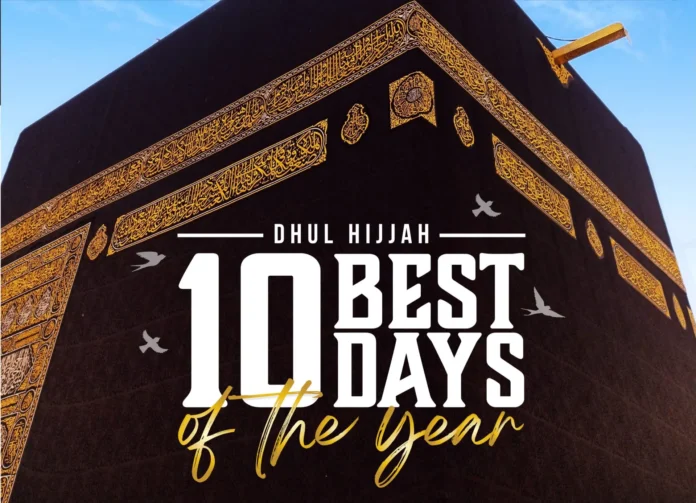First 10 Days of Dhul-Hijjah: A sacred opportunity for worship, reflection
The Islamic month of Dhul-Hijjah holds a special place in the hearts of Muslims around the world. Known primarily for the pilgrimage of Hajj and the celebration of Eid al-Adha, its first ten days are also among the most spiritually significant days in the Islamic calendar.
These days offer a unique opportunity for increased devotion, reflection, and good deeds, particularly for those not performing Hajj.
The Virtue of the First Ten Days
The Prophet Muhammad ﷺ emphasized the unparalleled virtue of these days. He said:
“There are no days in which righteous deeds are more beloved to Allah than these ten days.”
(Sahih al-Bukhari)
This hadith highlights that even greater than the days of Ramadan, the first ten days of Dhul-Hijjah are a time when acts of worship are immensely rewarded. These include prayer, fasting, charity, remembrance (dhikr), reading the Qur’an, and any good deeds.
READ ALSO: Benefits of fasting 6 days in Shawwal: A path to year-long reward
The Day of Arafat: A Day of Mercy and Forgiveness
Among these ten days, the 9th of Dhul-Hijjah, known as the Day of Arafat, holds the greatest importance. It is the day when pilgrims gather on the plain of Arafat during Hajj, standing in prayer and supplication. For those not on pilgrimage, the day still offers tremendous spiritual opportunity.
The Prophet ﷺ said:
“Fasting on the day of Arafat expiates the sins of the previous year and the coming year.”
(Sahih Muslim)
This single day of fasting has the power to wipe away two years of minor sins—an extraordinary mercy from Allah. In addition to fasting, Muslims are encouraged to increase their remembrance of Allah (e.g., saying ‘SubhanAllah,’ ‘Alhamdulillah,’ ‘Allahu Akbar,’ and ‘La ilaha illa Allah’) throughout these days.
How to Maximize These Ten Days
Whether or not one is performing Hajj, all Muslims can take part in the blessings of these days by:
Fasting, especially on the Day of Arafat
Praying extra voluntary prayers
Giving in charity
Reading and reflecting on the Qur’an
Engaging in dhikr (remembrance of Allah)
Making sincere du’a (supplication)
Repenting for past sins
Offering the sacrifice (Qurbani) on Eid al-Adha
In conclusion, the first ten days of Dhul-Hijjah are a rare and precious window for spiritual growth. Even if one cannot undertake the Hajj, these days offer a path to great reward and closeness to Allah. By engaging in acts of worship and reflection, every Muslim can share in the spirit and blessings of this sacred season.
Don’t let these days pass by without striving for goodness, they may be the most valuable days of your entire year.
Follow the Neptune Prime channel on WhatsApp:
Do you have breaking news, interview request, opinion, suggestion, or want your event covered? Email us at neptuneprime2233@gmail.com





